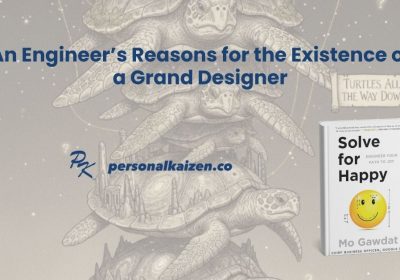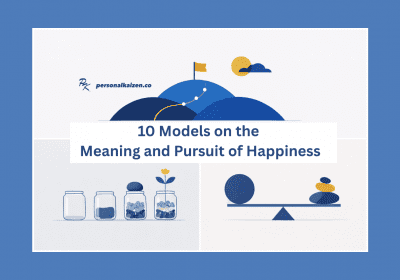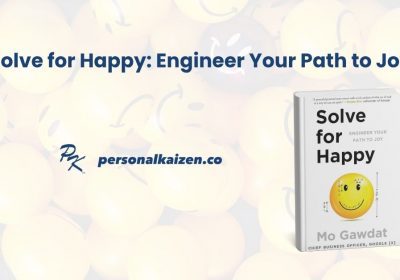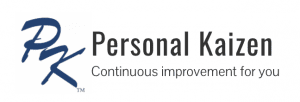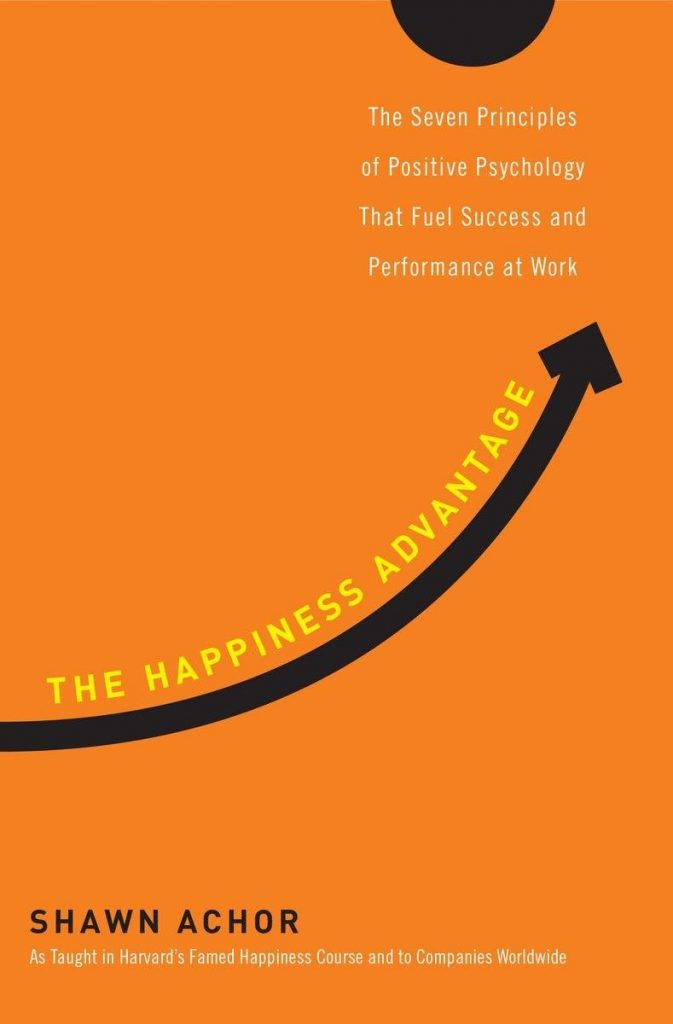
In the pursuit of success, we’ve been sold a faulty formula: work hard, become successful, and then you’ll be happy. But what if the equation is backward? What if happiness isn’t the result of success, but the engine that drives it? Shawn Achor’s international bestseller, The Happiness Advantage, dismantles this conventional wisdom and presents a compelling, science-backed case on the need to cultivate a positive mindset first. It’s about training our brains to be happier, more resilient, and more effective; shifting the focus from simply reacting to life’s challenges to actively creating a better future.
Learn Achor’s seven principles of positive psychology that fuel success and performance at work and life in this month’s Personal Kaizen blog post.
The Happiness Advantage
The core of Achor’s philosophy is the “Happiness Advantage,” the principle that a positive brain has a biological and cognitive edge over a neutral or negative one. When we’re happy, our brains release dopamine and serotonin, which not only make us feel good but also activate our learning centers. This chemical boost improves our ability to think creatively, solve problems, and be more productive. Achor’s research shows that happier individuals are more motivated, resilient, and successful across the board. The good news is that happiness isn’t a fixed trait; it’s a skill we can develop through consistent practice, much like any other.

Here are a few proven ways we can raise our levels of happiness throughout the day:
- Meditate – even just a few minutes a day is helpful.
- Find something to look forward to – anticipating future rewards can cause as much pleasure as the real thing!
- Perform conscious acts of kindness – generosity only makes you happier if you plan it.
- Infuse positivity – Enjoy time in nature and beauty and avoid negative news.
- Exercise – physical activity releases endorphins and enhances your mood.
- Spend money (but not on stuff) – Spend generously on fun activities or to help others.
- Use your natural strengths – your sense of meaning and mood can be improved while you are “in the flow” of whatever you are naturally gifted at.
The Fulcrum and the Lever
Inspired by Archimedes’ famous quote, this principle teaches us that our mindset is the fulcrum, and our actions are the lever. By adjusting our mindset (the fulcrum), we can generate the power (the lever) to change our reality. It’s a reminder that while we can’t always control the events that happen to us, we have complete control over how we interpret and react to them. Shifting our perspective from a burden to an opportunity is the first step toward gaining leverage over our circumstances and achieving greater success and fulfillment.

Here are some ways to improve your reality:
- Close your eyes and visualize all the reasons you will succeed in a task.
- Have a growth mindset and believe you can improve your abilities.
- Do you have a job, a career, or a calling? People who view their work as a calling find their work more rewarding and achieve better results.
- As a leader, understand the Pygmalion effect. If you believe in the potential of others and expect more from your employees, they will perform better.
The Tetris Effect
After playing the video game Tetris for hours on end, people often report seeing the world in terms of falling blocks, trying to fit everything together. Achor uses this phenomenon to explain how our brains can get stuck in a pattern of negativity, constantly scanning for stress, failure, and threats.

To be happy, we need to get our brains focused on positives instead. Here are a few ideas for action:
- Close your eyes and visualize all the reasons you will succeed in a task.
- Have a growth mindset and believe you can improve your abilities.
- Do you have a job, a career, or a calling? People who view their work as a calling find their work more rewarding and achieve better results.
- As a leader, understand the Pygmalion effect. If you believe in the potential of others and expect more from your employees, they will perform better.
We can train our brains to spot possibilities and opportunities, making us more optimistic and better at seizing them when they appear.
Falling Up
Achor challenges the idea that a crisis must lead to a downward spiral. Instead, he proposes that we can “fall up” by using adversity as a catalyst for growth. And as we covered in our recent post on Stumbling on Happiness, we all way overestimate how much a setback will affect our happiness.
When faced with a setback, we have the choice between three paths: return to our original state, fall further into a negative cycle, or find a mental path that leads us to be happier and more successful because of the experience. None of these beliefs are true, so we may as well make them useful. Reframe failure (or potential failure) not as a dead end, but as a stepping stone. Build your experience and resilience, and emerge from the setback stronger. Read the book to learn Achor’s ABCD model of interpretation.
The Zorro Circle
In the movie “The Mask of Zorro,” Zorro’s mentor trains him by having him focus on a small circle drawn on the ground, mastering his sword work within its confines before expanding his arena. The “Zorro Circle” principle applies this idea to our lives. When we feel overwhelmed and our rational brains are hijacked by stress and emotion, the key is to regain control by focusing on small, manageable goals. By mastering a small circle of our lives first, we build confidence and momentum. As we achieve these “small wins” – personal kaizen – we can gradually expand our circle of influence to tackle bigger and bigger challenges.
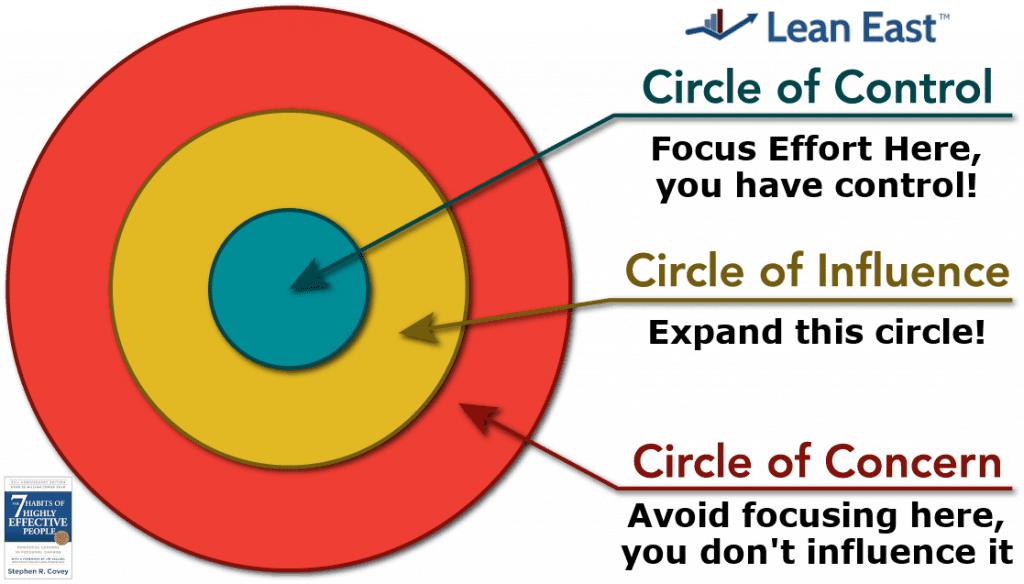
Here are a few ways to simplify your issues into a simple “Zorro Circle” of concern:
- Separate all of your tasks, problems, issues, and needs into areas you control and areas you don’t.
- Focus all of your effort on the areas you control. Ignore the rest.
- Focus on small, incremental progress.
- Keep track of your progress and celebrate your improvement.
The 20-Second Rule
Sustaining lasting change can feel impossible because our willpower is a limited resource. The “20-Second Rule” offers a simple solution: lower the activation energy for positive habits and increase it for negative ones.
Our Personal Kaizen community already knows the keys to developing new habits. We stress the importance of making your habit smaller and simpler. Achor’s research shows that a 20-second barrier is enough to prevent a bad habit from taking hold. For example, if you want to watch less TV, take the batteries out of the remote and put them in another room. The 20-second effort of getting the batteries will be enough to disrupt the habit. By making small, strategic adjustments to your environment, you can reroute the path of least resistance toward the behaviors you want to adopt.
Make the habits you want to adopt easier by making them simpler. We offer several examples of this in our posts about establishing bedtime routines and morning routines.
Social Investment
In a world that often encourages us to be self-sufficient, Achor emphasizes the critical role of social support. In times of challenge and stress, the most successful people don’t hunker down and retreat; they invest in their social support network of friends, family, and peers.
Studies have shown that our relationships are one of the greatest predictors of happiness and success. Strong social bonds not only provide an antidote to stress and depression but also fuel our resilience and productivity. Happiness is not a solo sport; it’s a ripple effect that starts with us but is magnified by our connections with others.

Achor has several suggestions for leaders:
- When a crisis hits, we often retreat inward and focus all of our effort on the crisis. Instead, spend more time together, dealing with the crisis as a team.
- When challenged with a hard work project, ask for input, encouragement, and help!
- Socially connected employees are more successful. Take the time to learn about your co-workers and spend time together.
- Lead with radical candor and truly care about your employees.
Summary
The Happiness Advantage is a blueprint for rewiring our brains to thrive in a complex, often stressful world. By recognizing that happiness fuels success, not the other way around, we can actively train our brains to see possibilities, embrace challenges, and invest in the relationships that matter most.
Achor often talks with people after a seminar who say, “I’m pretty good, but my boss or partner is the one who really needs to read this book!” Achor notes that the only person we have control over is ourselves. We must practice these seven principles ourself, starting with realizing that anytime we want to feel happier, all we need to do is smile! And happiness is contagious. If we want to help others feel happier (even strangers), smile at them.
The book’s message is simple yet profound: happiness isn’t just about feeling good; it’s a competitive advantage that can help you achieve extraordinary things.

